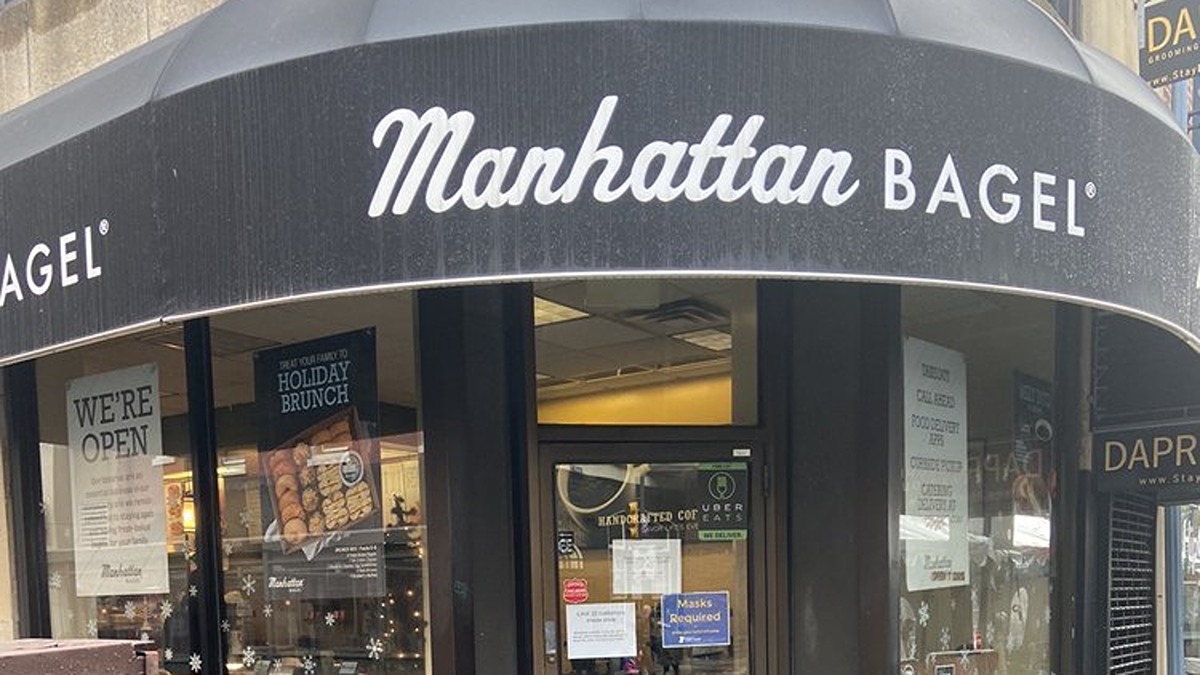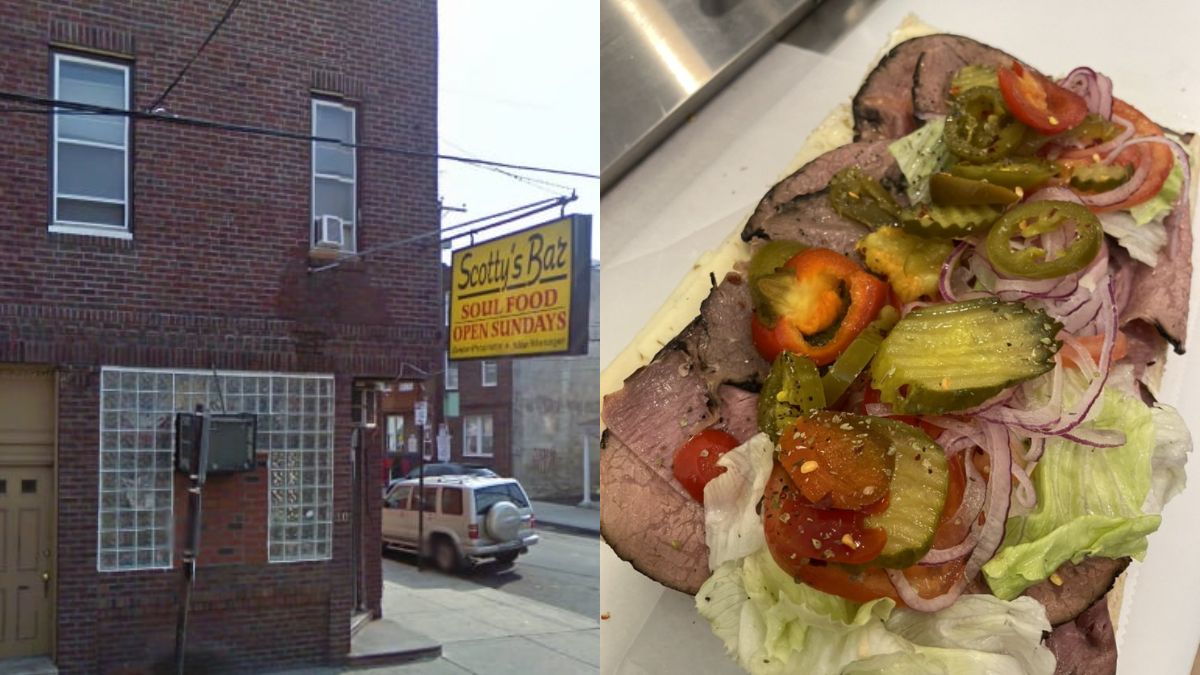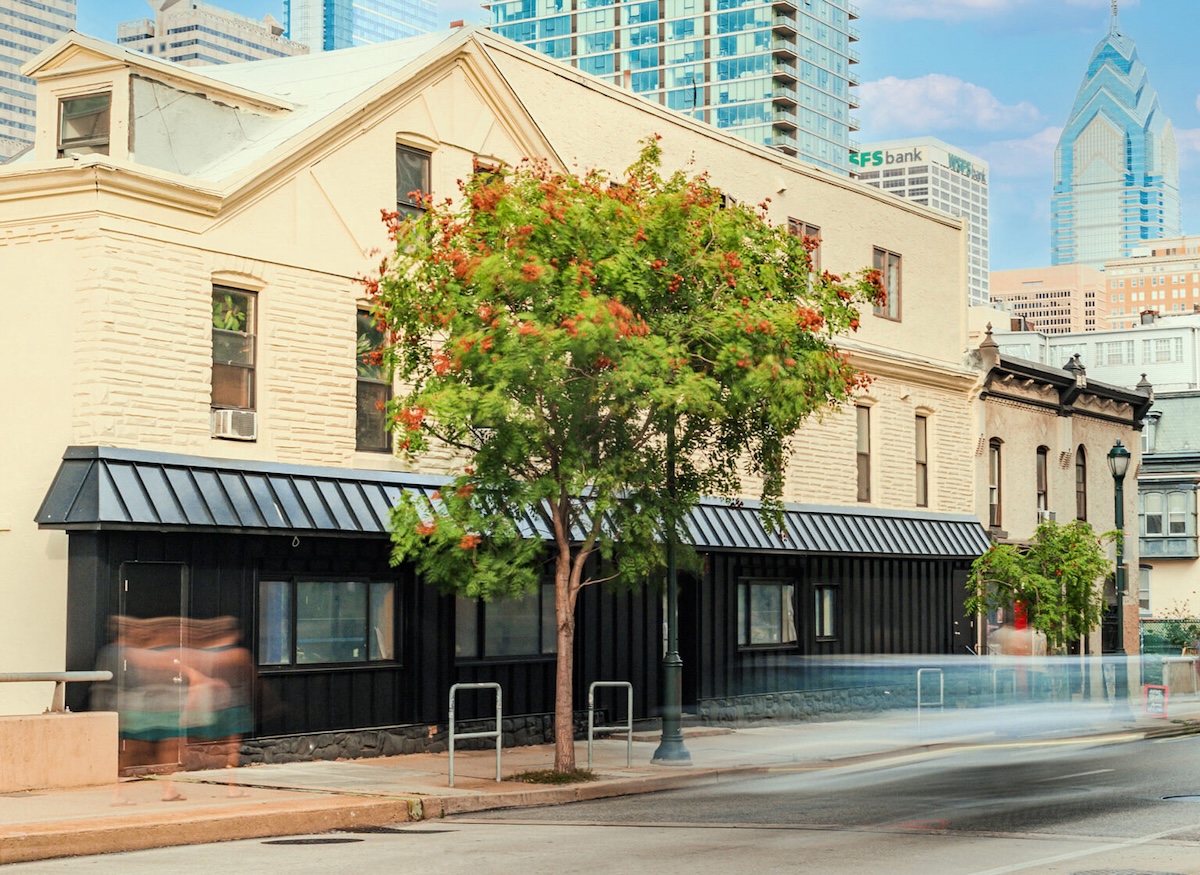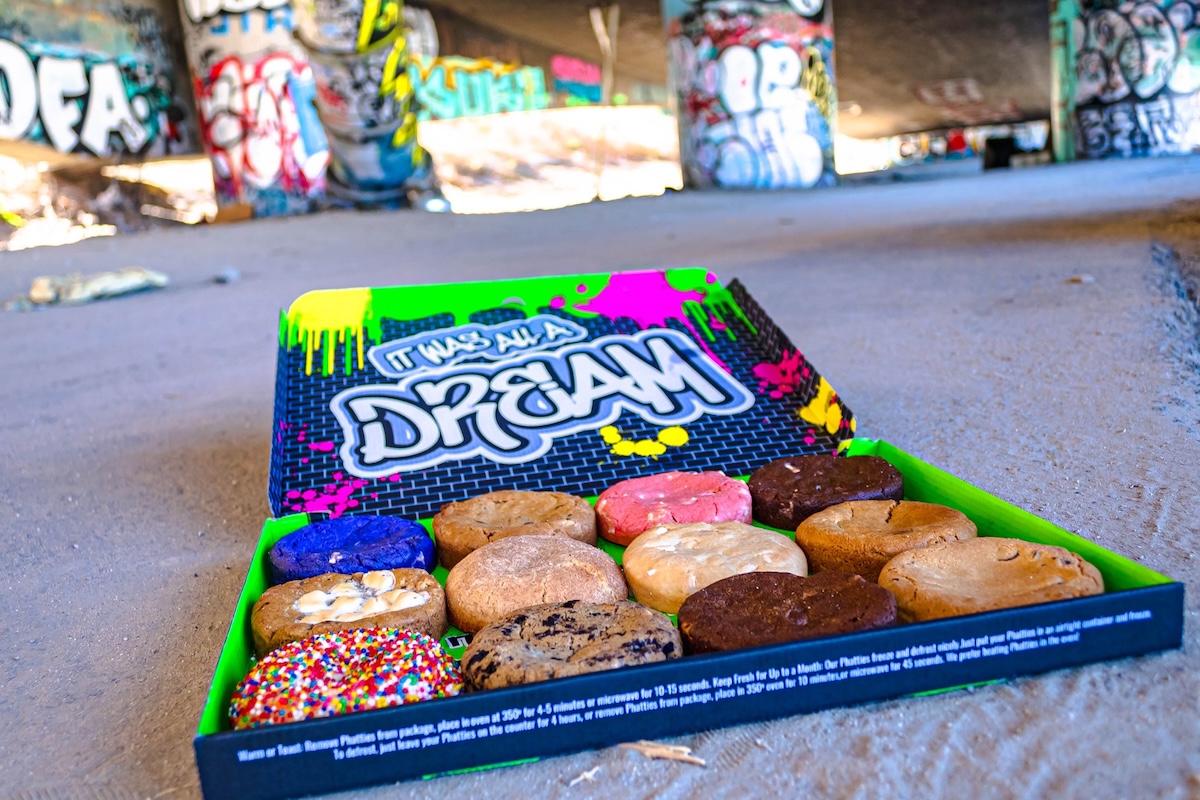In a routine inspection by the Philadelphia Health Department, a Manhattan Bagel location was cited for multiple violations. Improper food handling methods and debris accumulation were among the violations reported. The facility needs to correct these violations before business operations can resume.
Please note that the report mentioned here is from an inspection conducted on September 11, 2025, and may not represent the future health inspection status of the establishment.
Highlights
- Manhattan Bagel was ordered to cease operations temporarily due to several health code violations.
- The violations include the accumulation of debris and rodent droppings in several areas of the facility.
- Business operations will resume after correcting the violations noted in the report.
Manhattan Bagel
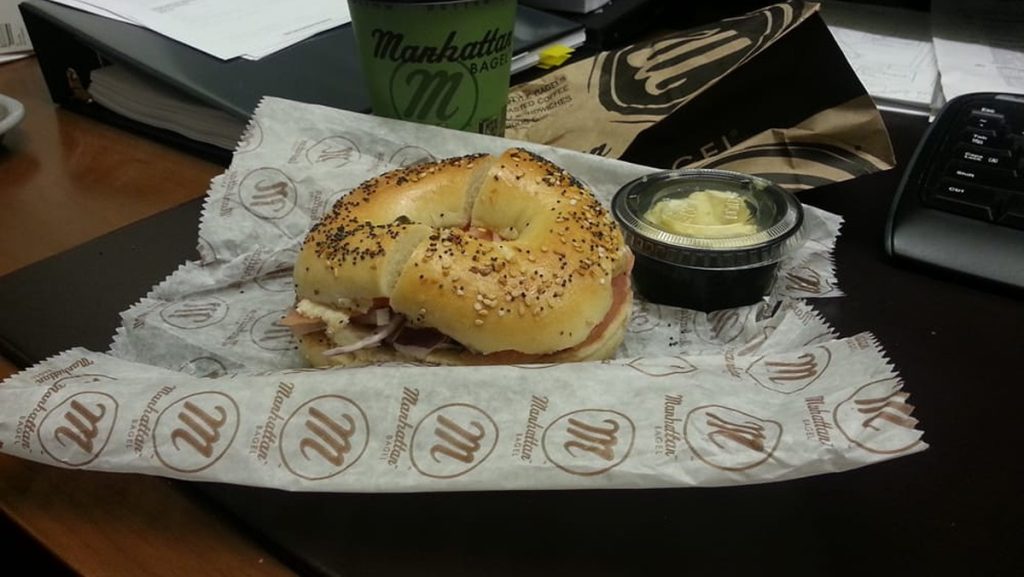
- Where: 125 S 18th St, Philadelphia, PA 19103
- Date: September 11, 2025
Manhattan Bagel on 18th Street in Philadelphia has recently undergone a health inspection. The health code violations observed in this inspection resulted in the facility being ordered to temporarily cease operations. The violations were documented by the on-site inspector in a report.
Inspectors first observed an employee touching ready-to-eat food with their bare hands. There was expired milk in the mini refrigerator, and cut tomatoes were stored at 44°F. In the basement refrigerator, raw eggs were found above the ready-to-eat foods.
In the 3-bay warewash sink, the concentration of quaternary ammonium was 100 ppm instead of 200 ppm. The sanitizer dispenser was not in good repair. There were no sanitizer strips available to monitor quaternary ammonium and chlorine sanitizer concentration.
In the back-handwashing area, Raid insecticides were found. It was not approved for use in a food facility and was immediately discarded. Temperature measuring devices were not readily accessible in refrigerator equipment. Labels listing the product name, ingredients, and net weight were missing from the prepackaged cookies, tuna, and beverages.
In the food preparation, storage, and basement storage areas, inspectors found visible evidence of mouse activity. Mice droppings were also found accumulated in the soda fountain cabinet, on boxes of soda syrup, and on boxes of tissue paper. It was also behind the beverage dispensers on the beverage counter, shelving surfaces with a mini refrigerator, and behind the storage shelf under the prep table.
Debris and mice droppings were observed under the cooking equipment in the kitchen area and the back corner of the prep area. It was also under the 3-compartment sink and on the floor of the basement storage areas. Debris and residue were accumulating at the bottom of the reach-in freezer.
Food debris was in the cup holder, tabletops, shelving, and storage cabinets. Residue was accumulating on the seams and sides of the soda machine. In the food prep area, there was grime on the light shields.
Grease was accumulating on the vent cover by the doorway of the food prep/warewash area. The ceiling tiles and walls around the warewash area and retail area were accumulating grease and grime. Ceiling times were missing, and the vent cover was unsecured.
In the kitchen and the warewash area, there were cracked and damaged floor tiles. The expansion foam throughout the facility was not smooth and was not easily cleanable. There was an unsecured ceiling tile above the warewash area.
There was a non-NSF drying rack in the warewashing area and a non-NSF reach-in freezer in the basement storage area. The top portion of the cold prep unit did not maintain a temperature below 41°F. The exit sign by the doorway is not fixed to the ceiling.
A detailed health report of this inspection is available online.
Follow-Up Inspection
Documenting these violations, the inspector ordered the facility to cease food operations for a minimum of 48 hours. This is due to the imminent health hazards observed during the inspection. The management needs to fix the violations and pay a fee, after which a Sanitarian must be contacted.
Following a reinspection, the establishment will receive approval from the Department to resume operations. Timely corrections can ensure that business operations face no problems in the future. This is to safeguard public health and maintain standard practices in public eateries.

